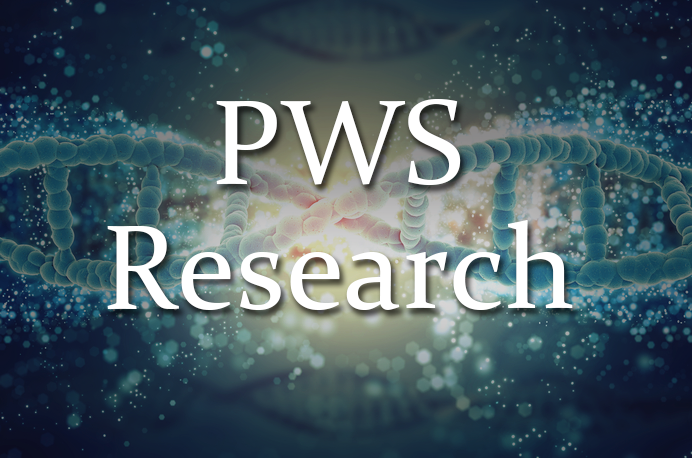Topics: Research
The number of molecules controlling appetite and body weight continues to grow! A new satiety-inducing molecule, secreted by the hypothalamus, has been identified and named "nesfatin-1" (short for: NEFA/nucleobindin2-encoded satiety- and fat-influenc...
An article published last year described a new appetite suppressing peptide hormone, obestatin (see previous blog and reference here). One interesting feature about this peptide is that it appears to be derived from the same precursor as ghrelin, the...
Topics: Research
A new paper out in the Journal of Pediatrics looks at Ghrelin levels in young children with Prader-Willi syndrome - Erdie-Lalena CR, Holm VA, Kelly PC, Frayo RS, Cummings DE. J Pediatrics, 149:199-204, 2006). This study adds to the existing literatur...
Topics: Research
Dr. Phillip Lee is an expert on PWS endocrine issues; notably growth hormone therapy in PWS. He wrote a review on the subject in the Growth, Genetics & Hormones journal, an online resource directed to endocrinologists and health professionals tha...
Topics: Research
Some years ago, the dietary pill Fen-Phen was a fairly widely used, effective drug for weight loss, and was even reported to be helpful in PWS in a small clinical trial: Selikowitz M, et al. Unfortunately, its adverse effects on the heart and lungs l...
Topics: Research
Here's an article of interest from WebMD: Do Bigger Portions Lead to Bigger Kids? http://aolsvc.health.webmd.aol.com/content/Article/107/108575.htm
Topics: Research
The International Congress of Neuroendocrinology was held this week at Univ Pittsburgh- some very interesting things were dicussed there .
Topics: Research
Modafinil (Provigil) has been suggested as a potential wake-promoting drug that might be helpful in PWS. Interestingly, this article (although a very small study) showed that individuals taking modafinil consumed less food.
Topics: Research
Two new articles that just arrived in the new issue of the American Journal of Human Genetics caught my eye. Both articles deal with the serotonin system, and common genetic variants of the components of the system.
Topics: Research







